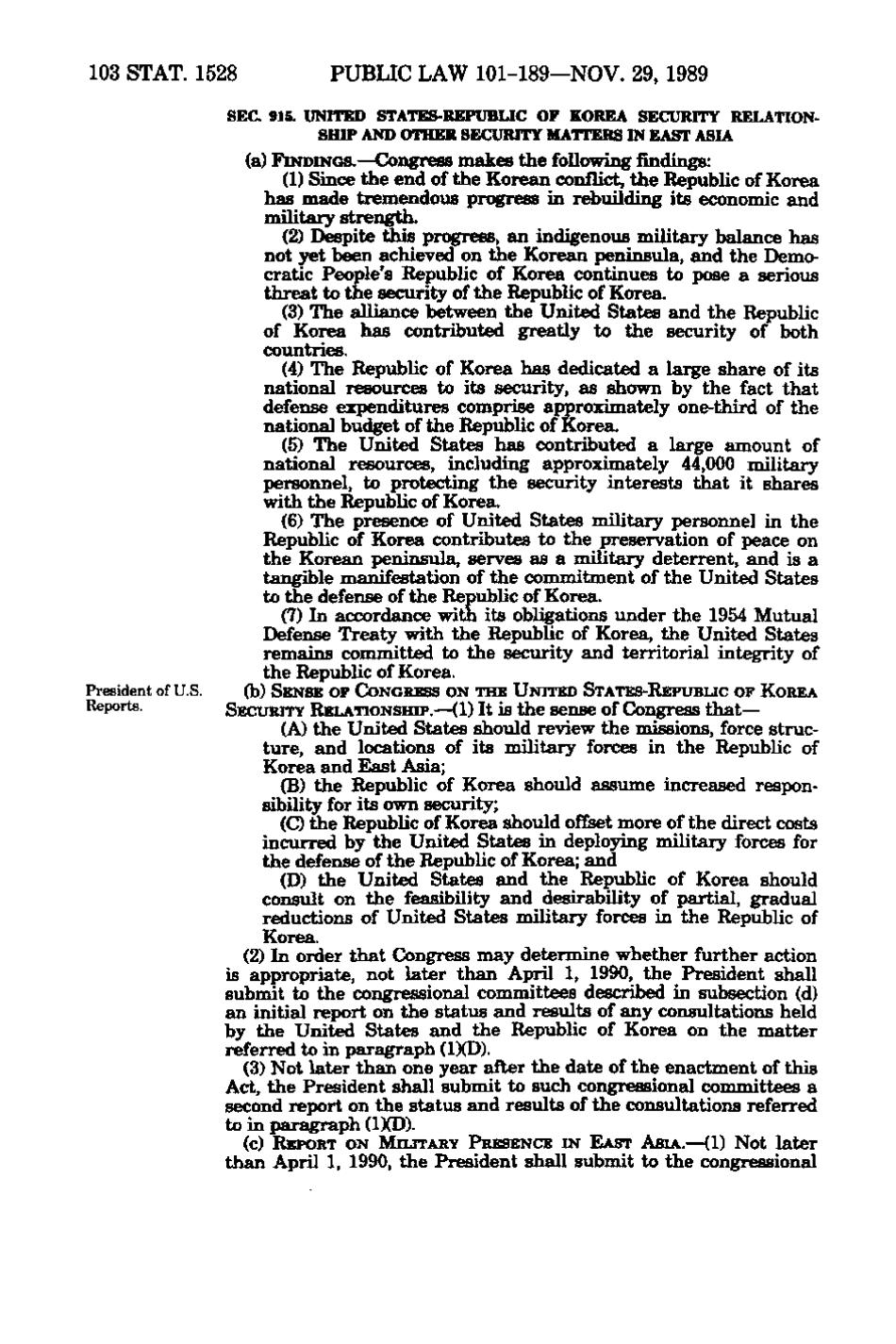103 STAT. 1528 PUBLIC LAW 101-189—NOV. 29, 1989 SEC 915. UNITED STATES-REPUBLIC OF KOREA SECURITY RELATION- SHIP AND OTHER SECURITY MATTERS IN EAST ASIA (a) FINDINGS.—Congress makes the following findings: (1) Since the end of the Korean conflict, the Republic of Korea has made tremendous prepress in rebiiilding its economic and military strength. (2) Despite this progress, an indigenous military balance has not yet been achieved on the Korean peninsula, and the Demo- cratic People's Republic of Korea continues to pose a serious threat to the security of the Republic of Korea. (3) The alliance between the United States and the Republic of Korea has contributed greatly to the security of both countries. (4) The Republic of Korea has dedicated a large share of its national resources to its security, as shown by the fact that defense expenditures comprise approximately one-third of the national budget of the Republic of Korea. (5) The United States has contributed a large amount of national resources, including approximately 44,000 military personnel, to protecting the security interests that it shares with the Republic of Korea. (6) The presence of United States military personnel in the Republic of Korea contributes to the preservation of peace on the Korean peninsula, serves as a military deterrent, and is a tangible manifestation of the commitment of the United States to the defense of the Republic of Korea. (7) In accordance with its obligations under the 1954 Mutual Defense Treaty with the Republic of Korea, the United States remains committed to the security and territorial integrity of the Republic of Korea. President of U.S. (b) SENSE OP CONGRESS ON THE UNITED STATES-REPUBLIC OF KOREA Reports. SECURITY RELATIONSHIP. —(1) It is the sense of Congress that— (A) the United States should review the missions, force struc- ture, and locations of its military forces in the Republic of Korea and East Asia; (B) the Republic of Korea should assume increased respon- sibility for its own security; (O the Republic of Korea should offset more of the direct costs incurred by the United States in deploying military forces for the defense of the Republic of Korea; and (D) the United States and the Republic of Korea should consult on the feasibility and desirability of partial, gradual reductions of United States military forces in the Republic of Korea. (2) In order that Congress may determine whether further action is appropriate, not later than April 1, 1990, the President shall submit to the congressional committees described in subsection (d) an initial report on the status and results of any consultations held by the United States and the Republic of Korea on the matter referred to in paragraph (I)(D). (3) Not later than one year after the date of the enactment of this Act, the President shall submit to such congressional committees a second report on the status and results of the consultations referred to in paragraph (I)(D). (c) REPORT ON MILITARY PRESENCE IN EAST ASIA.— (1) Not later than April 1, 1990, the President shall submit to the congressional
�
